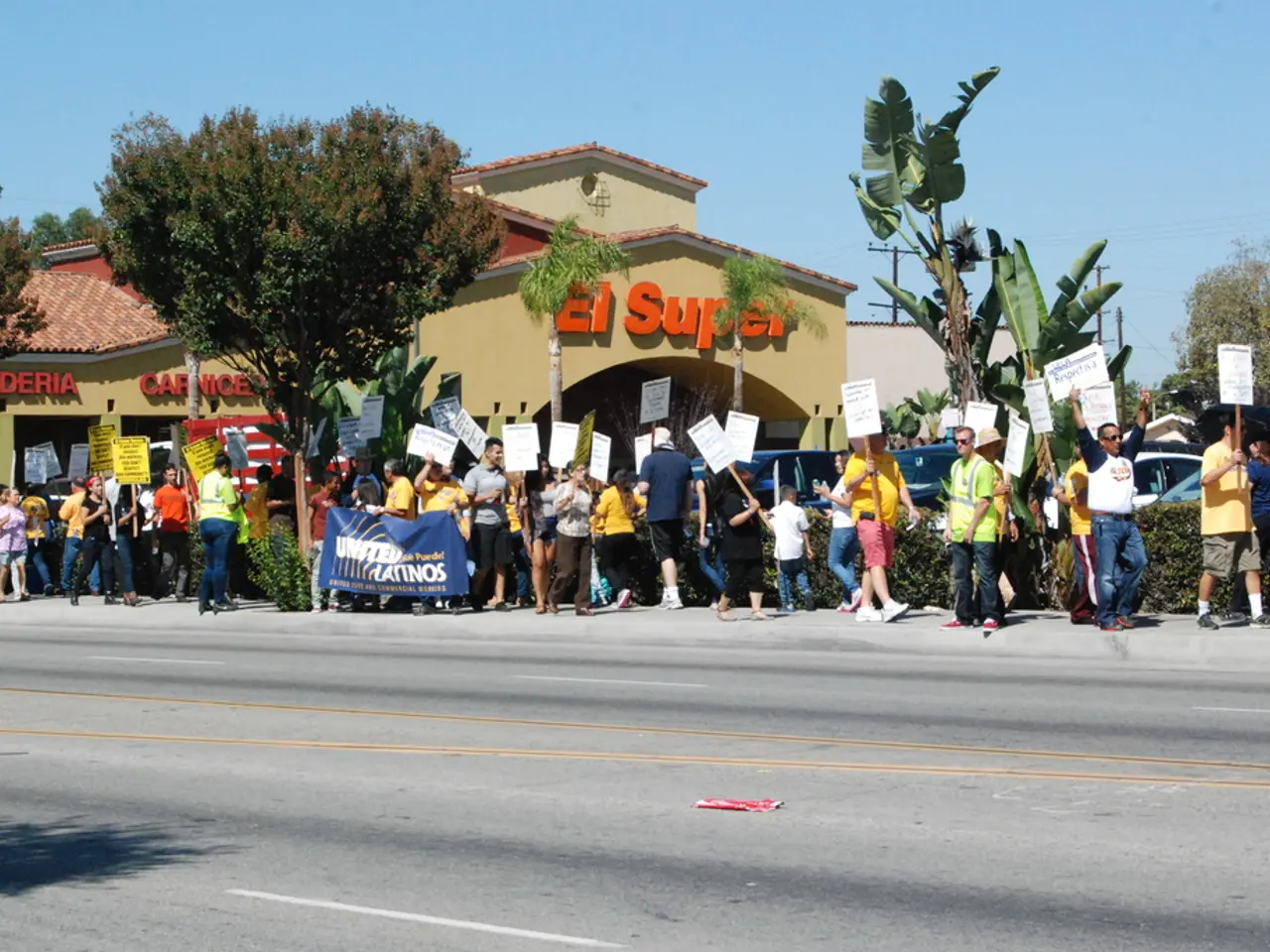Germany commits to an investigation into the security lapses leading to the Christmas market attack
In the heart of Germany, the city of Magdeburg is still reeling from the aftermath of a tragic attack on its Christmas market, which left four women and a nine-year-old child dead, and over 200 people injured. The suspect, Taleb al-Abdulmohsen, a 50-year-old Saudi national, has been identified and arrested at the scene [1].
The attack, which occurred on December 19th, has sent shockwaves across the nation. As investigations continue, authorities are working diligently to uncover the motive behind the senseless act [2]. However, details about Abdulmohsen's background and previous history remain limited [3].
Reports suggest that Abdulmohsen, a psychiatrist by profession, has been vocal about his criticisms towards Germany. He has strongly condemned the country for allowing in too many Muslim refugees and has backed far-right conspiracy theories about the "Islamisation" of Europe [4]. He has also identified himself as a "Saudi atheist" and has been critical of Germany's treatment of Saudi refugees [5].
Abdulmohsen's online presence has raised concerns. He has made death threats and had previous trouble with the law [6]. In 2013, a court fined him for disturbing the public peace by threatening to commit crimes after he had darkly referenced the deadly attack on the Boston marathon [7].
The German government has reacted swiftly to the incident. Olaf Scholz, the German Chancellor, condemned the attack as "terrible and insane" [8]. Dirk Wiese, a senior MP from Scholz's Social Democrats, has announced that the heads of the BND, the domestic intelligence service BfV, and the Office for Migration and Refugees will be summoned for hearings on December 30th [9].
The incident has sparked a call for reforms in internal security. Mass-circulation daily Bild called for sweeping changes after the election for a complete "turnaround in internal security" [10]. Alexander Throm, a Conservative CDU lawmaker, criticized the Scholz government for failing in terms of internal security [11].
Meanwhile, the far-right Alternative for Germany (AfD) has called for a special session of parliament [12]. Sahra Wagenknecht, the head of the far-left BSW party, has demanded that Interior Minister Nancy Faeser explain why many tips and warnings were ignored beforehand [13].
In response to the attack, Faeser has promised to investigate thoroughly, ensuring "no stone will be left unturned" regarding information available to security services before the attack [14]. Security sources have reported that the Saudi secret service warned Germany's spy agency BND a year ago about a tweet from Abdulmohsen threatening repercussions for how Germany treated Saudi refugees [15].
However, there is no available information in the provided search results indicating that he was previously known to intelligence agencies or that any warnings had been issued about him before the incident [16].
Mina Ahadi, the chairwoman of the group Central Council of Ex-Muslims, stated that Abdulmohsen has been terrorizing them for years [17]. The city of Magdeburg is in deep mourning due to the mass carnage at the Christmas market. Hospitals have been overwhelmed, with reports of blood on the floor and people screaming [18].
As the nation grapples with the aftermath of the attack, the focus remains on ensuring the safety and security of its citizens. The investigation into the Magdeburg attack continues, with the hope that more details will emerge as investigations progress.
The Magdeburg attack, rooted in political controversy and general-news topics, has uncovered a history of vocal criticisms by the suspect, a psychiatrist, against Germany's policies, particularly towards Muslim refugees and his identification as a "Saudi atheist" [4, 5]. Amidst concerns about his online presence and previous trouble with the law [6, 7], the incident has resurfaced debates about internal security reforms and calls for accountability from government officials [10-13]. As investigations proceed, the focus remains on understanding the motive behind the attack and ensuring justice in the realm of crime and justice.








